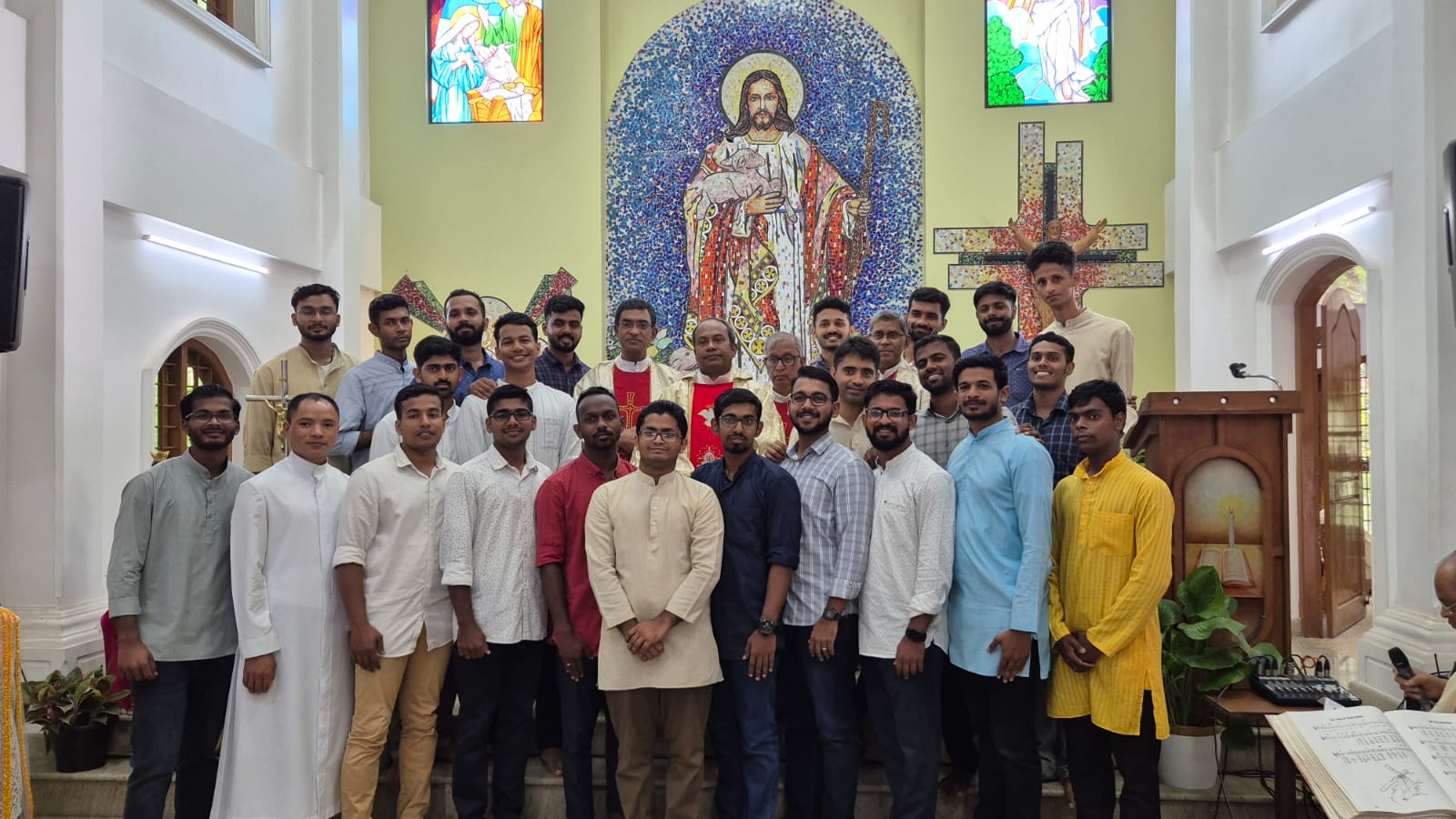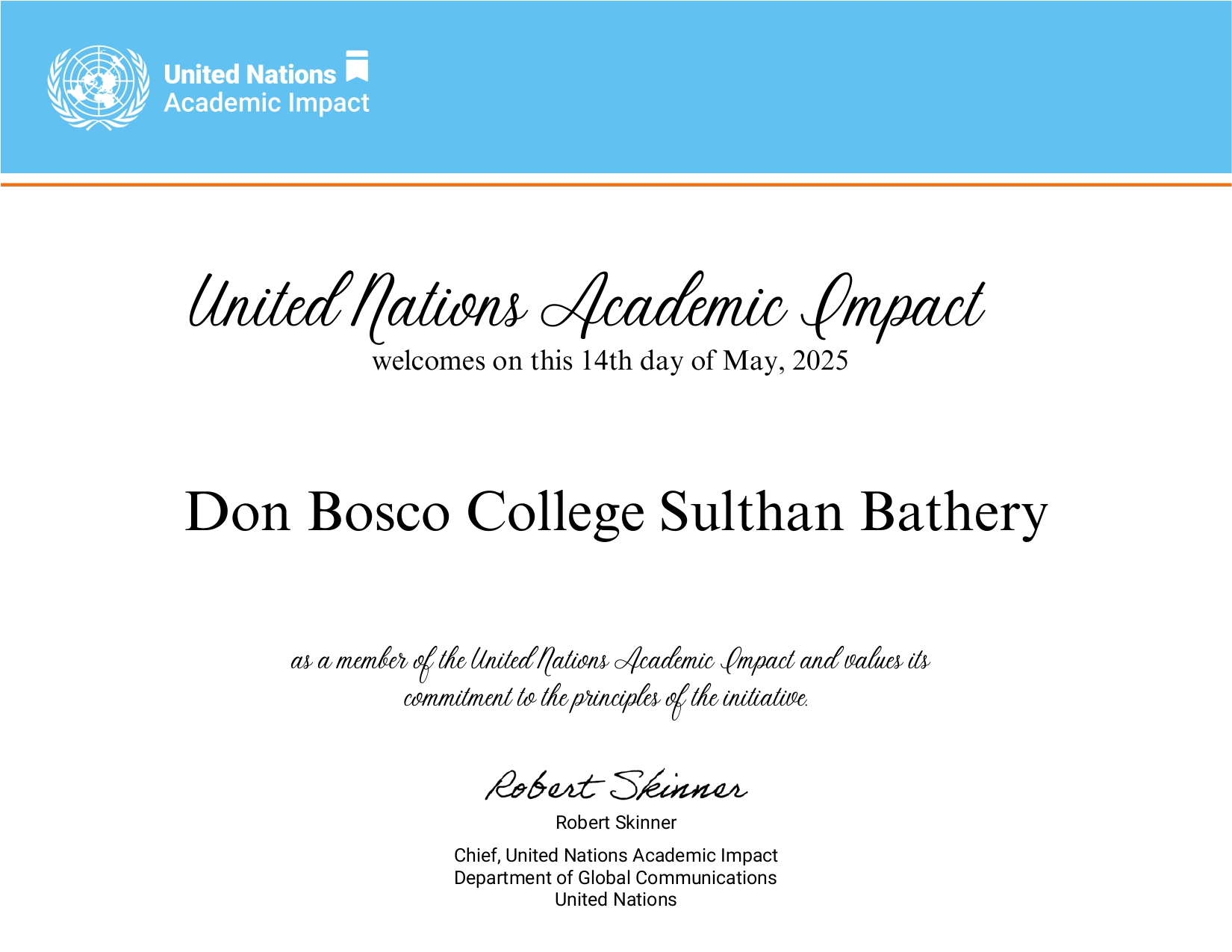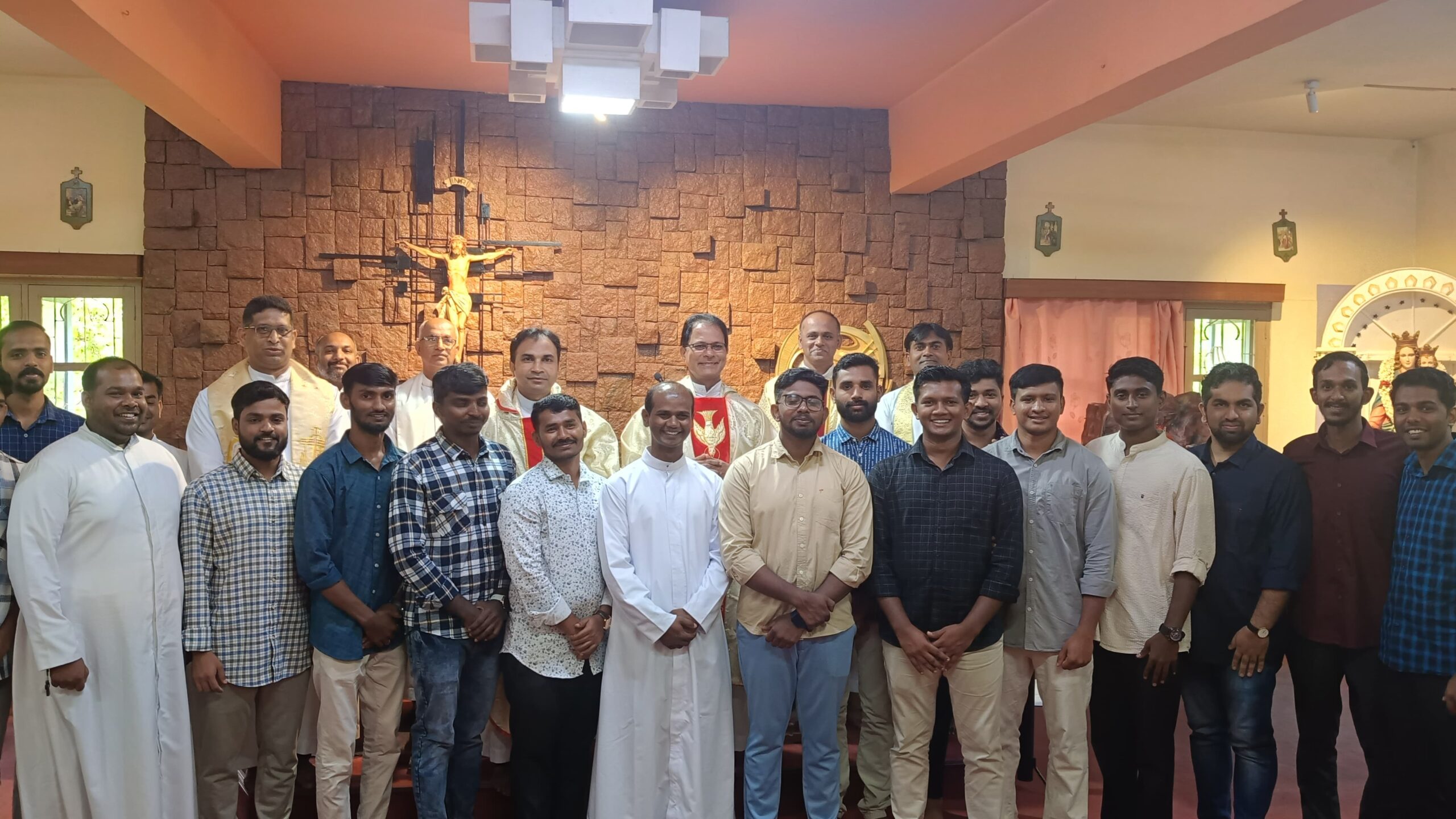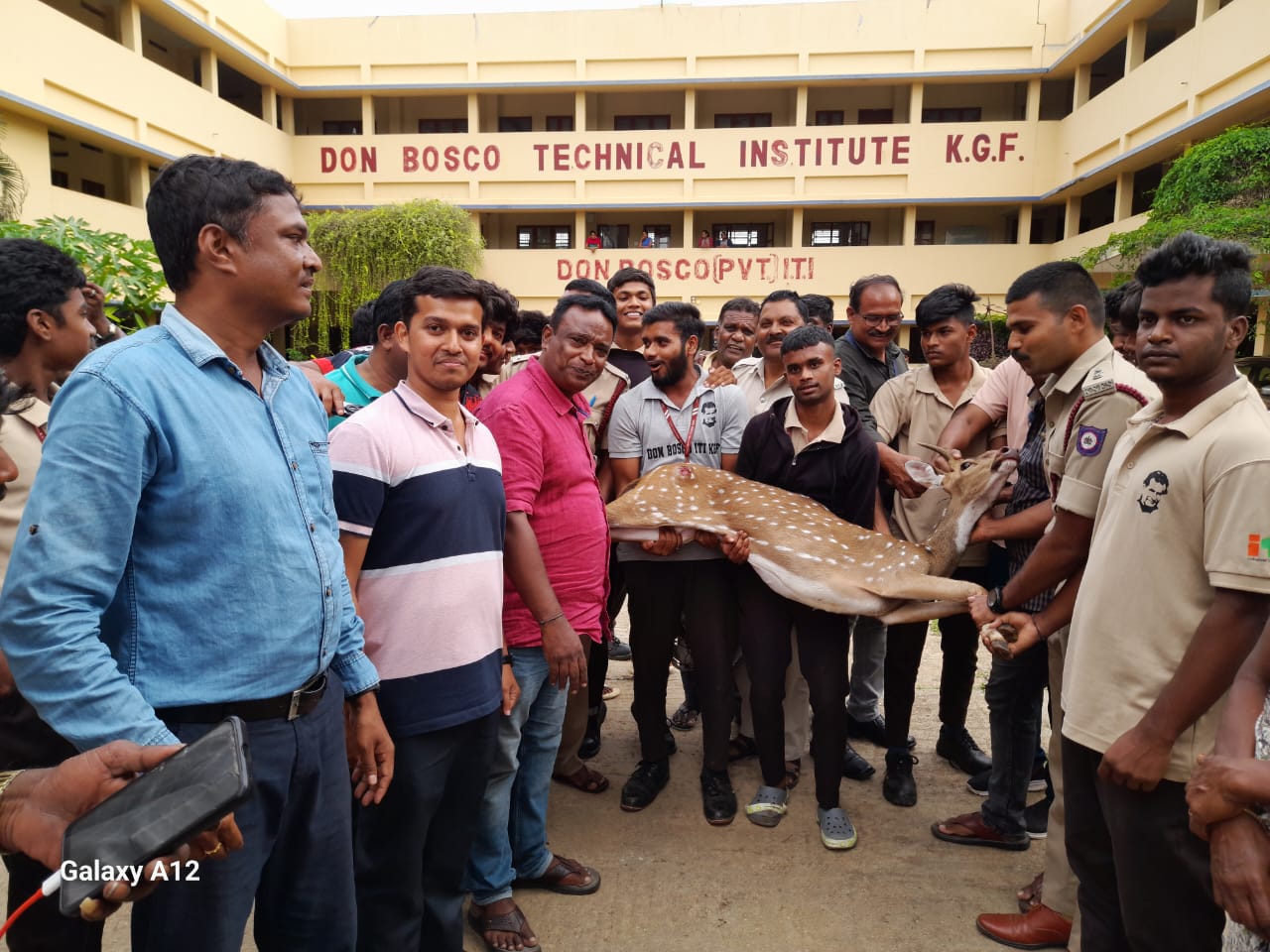
SYNODALITY AND SYNODAL WAY OF ACCOMPANIMENT
Pope Francis envisioned a new way of being the Church in the third millennium through the Synod on Synodality, which was inaugurated on 9 October 2021. The conclusion of the three-year synodal process is scheduled for October 2024. When inaugurating the synod, Pope Francis solemnly stated, “It is precisely this path of synodality which God expects of the Church of the third millennium.” The word “synodality” comes from the Greek words “syn” (together) and “hodos” (road, path). It implies a journey made together, a road walked together. This journey is in union with and under the guidance of the Lord Jesus, who promised, “Where two or three of you meet in my name, I am there among you” (Matt 18:20), and “Look, I am with you always; yes, to the end of the world” (Matt 28:20). At both personal and community levels, synodality is therefore a dynamic process of following and witnessing to the Lord who is in our midst.
Pope Francis has reminded us that synodality “is not a chapter in an ecclesiastical textbook, much less a fad or a slogan to be bandied about in our meetings. Synodality is an expression of the Church’s nature, her form, style and mission.” It is not only a theology but it is also a spiritual practice; it is a way of life which has to be cultivated and lived. We are being called to develop a way of living and governing that shows forth and is marked by the three interrelated pillars of the synodal Church – the synodality way: Communion, Participation and Mission. In our Salesian ministry too we need to live and promote these three key elements for accompanying in a synodal manner those entrusted to our care. The structures, systems and processes in place need to enable and enhance communion, participation and mission.
Living Synodality in Jesus’ Way of Accompaniment
Living synodality means that everyone has something to contribute. All are called to serve one another through the gifts that they have received for the synodal church. In this synodal model everyone has a different role and a different function in the building up of the community; but these different roles or functions are not equated with superiority or inferiority. Lord Jesus, washing the feet of his disciples, portrays very well the synodal way. How do we understand this symbolic action of Jesus? Jesus does the work of a slave and gives us an example of humility and humble service, which the disciples are called to imitate.
Sandra Schneiders rightly proposed the dialogue between Jesus and Peter as the hermeneutical key to understanding this symbolic action (Jn 13:6-9). She interpreted this scene by examining the dynamics of the relationship between one’s serving and one’s receiving the service in daily life. One can imagine three possible servicescenarios. The first model is the service rendered by the poor to the rich. Here we have the example of a forced service for the survival of the poor and the relationship among them manifests dependence, domination and inequality. The second model is the service rendered by the rich to the poor or by teachers to students, etc. In this model, there may not be domination, but there is still inequality and dependence. Peter’s response is indicative of this model. The third model is the service rendered among friends as an expression of love, which celebrates equality and evokes reciprocity.
The question therefore is: which model of service is implied by Jesus when he washed the feet of his disciples? If we follow the first model, Peter should have actually washed his master’s feet. Instead Peter is refusing to be washed by Jesus because this reversal of roles is not acceptable to him (Jn 13:6-8a). Peter did not understand the significance of Jesus’ prophetic action. In the original Greek Peter’s expression, “You will never wash” is used with double negative particles for emphasis (Jn 13:8a): “By no means you wash my feet ever (unto eternity)”. The response of Jesus to Peter, “If I don’t wash you, you have no share [meros], inheritance, partnership, eternal life with me” (Jn 13:8b) is shocking. How can Jesus deny eternal life to Peter just because he refused to be the recipient of Jesus’ lowly service? So, it is clear that Jesus is not referring to the refusal of a menial service, but something more significant than a humble service as the foot-washing enabled the disciples to share the meros or eternal life with Jesus.
Jesus invited his disciples to do the same – wash one another’s feet (not the feet of their disciples). The Johannine Jesus thus repudiates any form of authority that treats others as subjects, and calls his disciples friends, but with one condition, “You are my friends, if you do what I command you” (Jn 15:14). So, it is clear that Jesus is not talking about some sentimental or emotional friendship but a covenant-model of friendship in which God’s command (God’s will) takes priority over other things. Moreover, it does not deny the unique role and mission of Jesus as the Teacher and Lord: “You call me Teacher and Lord; and you are right, for so I am” (Jn 13:13). When Jesus washed the feet of his disciples as his friends, he welcomed the disciples to
the new covenant community. Jesus inaugurated a new community of disciples in which all members relate to one another as friends and covenant partners of God. Synodal Journey and Salesian Mission
The synodal journey involves everyone in the process of discernment, decision making and implementation. It is therefore a communal process. A Fruitful communal process requires fulfilment of certain conditions. These conditions are: (1) Creating an atmosphere of trust and recognizing the abilities of the members. (2) Listening attentively and encouraging free and sincere dialogue. (3) Being ready to accept the potential problems that may arise during the communal search, and seeking to understand the causes of any unease or misunderstandings. (4) Knowing how to propose solutions and being open to others’ contributions. (5) Encouraging and motivating individuals to use their gifts for the community by making their own contributions. (6) Having the ability to make the final decision after evaluating the members’ free contributions.
Furthermore, a successful synodal process in fulfilling the mission also requires all participants to be determined to seek nothing but the divine will. It demands openness to recognizing the ability of others to discover the truth, attentiveness to the signs of the times, freedom from prejudices, excessive attachment to one’s own ideas, rigid or distorted perceptual frameworks and strong oppositions that hinder diverse opinions. Additionally, there must be a firm commitment to maintaining unity, regardless of what the final decision may be.
The more an issue is important to the life of the members, the greater the necessity to involve them before a decision is made. Every matter that concerns the community must undergo communal discernment in a spirit of prayer and seeking God’s guidance to determine what aligns with His will in that particular situation. Examples of matters that require dialogue include the community timetable, menu and other significant activities of the community.
Fr. Juan Vecchi captures in his letter to the Congregation the spirit of the synodal and communal approach that Don Bosco followed in the community of Valdocco. He wrote, “In the first community of Valdocco, the constant criterion for discernment and pastoral renewal was a community not only for the young but with the young: it shared their life and adapted itself to their needs. The participation of the youngsters determined the timetable and their chores in the oratory so that they could grow in their own space and conditions” (Vecchi, Acts 372, June 2000, p. 25). The words of Don Bosco to his young Salesians reveal the synodal approach he followed in the education and formation of the young. For example, Don Bosco associated the word “father” with two other terms: “brother” and “friend”. To the young rector Fr. Perrot, whom he sent to Navarre, he said, “So, go in the name of the Lord; go not as a superior but as a father, brother, and friend.” Don Bosco often signed his letters to his confreres with the words: “Your affectionate friend, priest John Bosco.” The synodal way for the Church proposed by Pope Francis is the path into which we Salesians are formed by Don Bosco, our father and founder. He established his mission to the young with the participation and collaboration of the boys in the oratory. The Salesian Congregation was founded with members who were once his own boys growing up in the Oratory. It is the fruit of a synodal journey he undertook, based on the pillars of participation, communion, and mission. As we continue the Salesian mission today, let us faithfully follow the synodal path that Don Bosco showed us.
I wish you all dear confreres a happy feast of the Nativity of Our Blessed Mother.
-
LENT: A JOUR...
29 March 2025 -
“ANCHORED IN...
14 February 2025 -
JUBILEE 2025...
08 February 2025 -
THE BIRTH OF...
08 January 2025 -
MONTH OF NOV...
13 November 2024 -
REDISCOVERIN...
13 October 2024 -
SYNODALITY A...
13 September 2024 -
INDEPENDENCE...
04 August 2024 -
THE SACRED H...
04 August 2024 -
THE SPIRITUA...
04 August 2024










